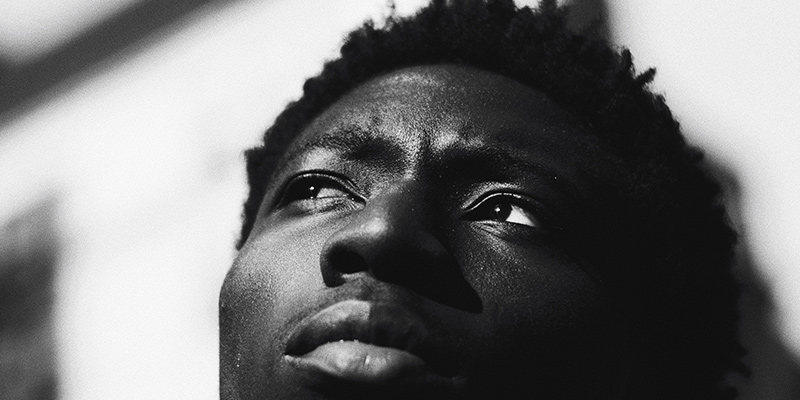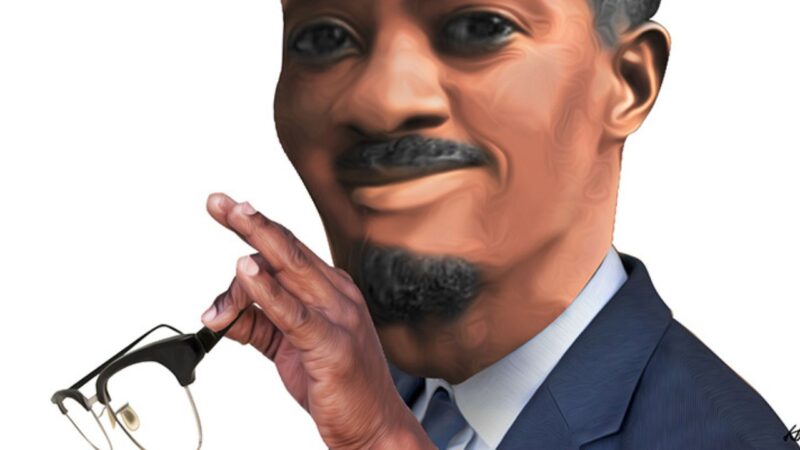Many with a decent knowledge of neocolonialism and global racism may have been shocked at the amount of Western decadence – from Anglo-American political stars and billionaires – that has flowed into Kenya in the first few months of President Ruto’s tenure.
Without a public discussion, the ban on Genetically Modified Organisms was lifted by decree, with a fairly racist caveat that since we Kenyans are dying of famine anyway, we need GMO foods to fill the gap. Weeks later, this dystopian logic would be openly articulated by the Trade Cabinet Secretary who, in a poor attempt at sarcasm, said in the midst of the morbid laughs of his elite audience: “By just being in this country, you are a candidate for death. And because there are so many things competing to kill you, there is nothing wrong with adding GMOs to that list.”
The introduction of GMOs is just one aspect of Ruto’s dream of turning Kenya into an industrialised country. During his ten-year tenure as Deputy President, Ruto opened hundreds of TVET (Technical and Vocational Education and Training) colleges around the country, even as he boasted of pursuing a Masters and later on a PhD. In between, he repeatedly made remarks that technical and vocational training was better than university education, and that history and other arts and social sciences were teaching Kenyans useless knowledge about Vasco da Gama.
The problem is that a proper history lesson would have taught the president that what we learned in geography in school was simply false. Being only a few years younger than the president, I suspect he believed the usual lies we were taught in geography, which was that the West has “developed” economies because of industrialisation. It was a lie even I believed until, as a lecturer, I witnessed the proletarianisation of doctors and university lecturers. I started to ask questions as to why the few professionals who were employed in Kenya were being reduced to paper-pushing bureaucrats, as the many who were unemployed were insulted, reduced to working in the service industry, or encouraged to seek employment abroad.
After years of listening and researching, I finally understood that the Gilded Age when the US and the UK industrialised was also a time of agony for the poor, but also of the gallant fight by workers for better living and working conditions. More than that, the neoliberalisation that was oppressing professionals was a symptom of the same decay happening in the West.
It’s amazing how the education system successfully compartmentalised our minds, because even though we were told that Europe colonised Africa to obtain raw materials for their industries, it never occurred to me that our colonisation was what paid for the industrialisation Europe was now boasting to us about. In any case, raising that question would have got me physically beaten up by teachers. Mental compartments always require violence. So the violence of the school system had successfully taught me not to draw any lessons outside of what would help us pass examinations. And now I remember that I hated geography when I was in high school.
For many people of my generation, especially people like the president who joined politics in their youth, this Damascus moment has never happened. We have kept holding on to the illusion of development, and the lie that we can either achieve it through social inclusion informed by Enlightenment human rights philosophy, or through industrialisation, through the application of free-market liberalism – no matter the cost – or through a more personalised form of Christianity. The minds of otherwise highly educated Kenyans seem not to notice the chaos of evangelical America, the buffoonery of the British Tories, or, on the other hand, the hypocrisy of “wokeism” and inclusion in the Democrats in the US and the Labour Party expunged of the Corbyn flank.
What explains this hubris?
This question has haunted me for the last 15 years. I have been frustrated by the fact that the same people with whom I went to school seem to think that Kenya’s problems are only with the Kenyans themselves. Very few of us know of Frantz Fanon or Walter Rodney, and those who do will still pivot towards inclusion, rather than radical politics, or towards outright conservatism. It has been a lonely journey of looking for people who will not avoid discussing imperialism and racism in our colonial institutions. Instead, people prefer to talk of politicians being corrupt and of the people being ignorant, because that helps them avoid the role of the middle class in Kenyan political and economic life.
In our discussions, haunted by this question, I asked Mordecai Ogada if the children born in the late ’60s and in the ’70s had underestimated the impact of colonialism despite not being born during colonial rule.
This is what he said:
“We grew up in the era where the best schools were the ones the wazungu went to. The best school was the Prince of Wales [Nairobi School] or Duke of York [Lenana School]. The best hospital was the wazungu hospital [Nairobi Hospital]. There was distinction in being a church member at All Saints Cathedral. You needed to attend church at Holy Family Basillica. So we grew up with that aroma of colonialism. It had died, but its stench was still hanging around. We grew up with it, thinking we’re independent, but no.
We’re actually in denial, because to escape from colonialism, you have to accept that it is there. You can’t solve a problem without admitting that it is there. Look at how many years it has taken to just have people accept that there is racism in conservation. Yet everywhere you look, it’s right there in your face. It’s not subtle or covert. It’s overt and in your face.”
My generation grew up very close to colonialism but with the false impression that independence had made us exempt from it. We were therefore taught the colonial curriculum – like about industrial revolution being the gold standard of economic development – and we were never exposed to alternative thinking.
It is a tragedy, because we were too young to know otherwise.
The problem is that we who think this way are teaching another generation to think the same way. I was surprised when some young students of economics responded to my discussion of Thatcher’s destruction of the working class in the 1980s with the slogan “Kenya is a capitalist country and communism does not work”. These are youth born in the 2000s, long after the structural adjustment programmes (which they are not taught about).
People prefer to talk of politicians being corrupt and of the people being ignorant, because that helps them avoid the role of the middle class in Kenyan political and economic life.
That is how we arrive at a president with the ambitious plan to industrialise Kenya and hoping to get support from the very countries that de-industrialised in the ’80s because they feared democracy and a vibrant working class more than they feared de-industrialization. The president is stuck in the geography curriculum of the 1970s, being advised by economists who admire the University of Chicago graduates who wreaked havoc in Latin America in the 1980s, with the religious fervour of the evangelical movement that rose up as a backlash against the civil rights movement of the same period. The president’s biggest detractors are the civil society who are using the victories of the ’90s as the blueprint for freedom – and some of them, especially in the media, are stoking the fires for a constitutional meltdown.
Kenya is in an intellectual time warp.
Binyavanga Wainaina continually lamented about this intellectual stagnation. In an article titled Schooling for small minds, he observed that Kenya had become this country that crushed any form of creativity and independent thinking. He said, “We took the colonial system, which was designed to produce dutiful people who don’t ask questions, and perfected it.” In a YouTube series titled We must free our imaginations, which extend this thinking, he said:
“The same colonial school that said ‘bring the obedient African children so that you can become clerks, and then we drum a syllabus into you so that you sing God save the queen’, is still the same idea [as telling us] that you don’t have an imagination. You can’t imagine outside those ma-parameters. You are scared of imagining. Where that’s happening is in the middle class. Down in the villages in Africa, guys are imagining and doing all kinds of shit. But who has the opinion? The middle class.”
The century-old industrial “revolution” as an economic blueprint is right there in the ma-parameters. We’ve tried the human rights model of constitutionalism, and it has tamed the political class, but now we have transformed it into an end in itself. We are crazy for replacing our education system based on philosophies that informed the evangelical “family values” and Booker T. Washington schools.
My generation grew up very close to colonialism but with the false impression that independence had made us exempt from it.
We need new ways to see our history and new inventions. Human rights is good, but it doesn’t address these problems. Singing about the “secular state” is a poor substitute for a revolutionary theology. Those calling those who disagree with Azimio tribalists, and those who disagree with the Kenya Kwanza government “rich idlers and Twitterati with a bowl of pizza and fish fingers” or “upper deck”, are just the same middle class trading insults with each other. Worse, those insults are really about who has the right credentials to talk about the majority of Kenyans. One side waves human rights, the other brandishes elections.
Yet what that whole strata of society really needs is a major reckoning, a repentance and a dismantling of the colonial pedestals in our minds. Kenyans of my generation – and that includes the president – must unlearn what we were taught in school. And perhaps we should not be so presumptuous as to believe that we know the right solutions to apply to the problems caused by the same system that trained us. I wish we would listen to the young people tell us what they are seeing and what we should do. As Binyavanga said, we need new ideas and new stories. Perhaps we should have the audacity to say to Kenya’s youth the words of Nikki Giovanni: “You my children of battle, are your own heroes. You must invent your own games and teach us old ones how to play.”








